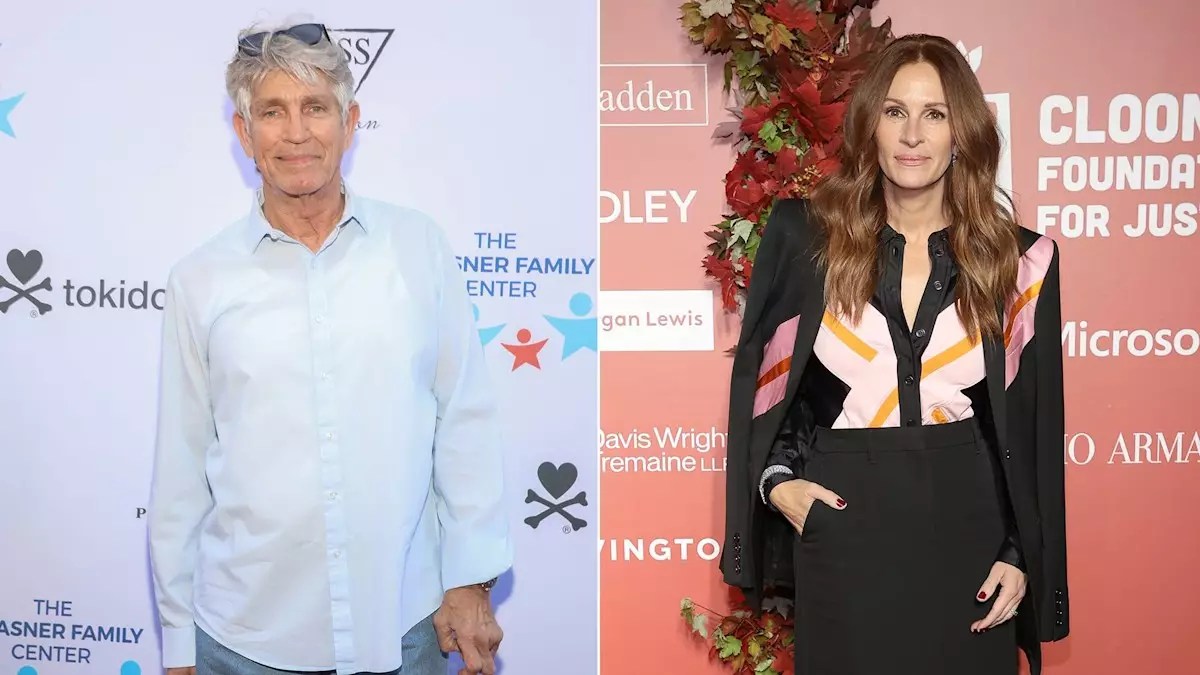In a recent revelation, actor Eric Roberts, brother of Hollywood A-lister Julia Roberts, has issued a heartfelt public apology to his sister, shedding light on the complexities of their familial relationship. Known for his roles in films like “The Dark Knight,” Eric’s retrospective insights come from his new memoir, “Runaway Train: Or, the Story of My Life So Far.” This memoir provides a candid look into his past while exploring the tumultuous nature of sibling relationships in the glitzy yet complicated world of Hollywood.
The roots of their estrangement can be traced back to Eric’s controversial statements regarding Julia’s meteoric rise to fame. In a 2018 Vanity Fair interview, he had audaciously claimed, “If it wasn’t for me, there would be no Julia Roberts,” a remark he now categorically retracts. In his memoir, he reflects on this admission as “asinine” and expresses regret that it not only strained his relationship with Julia but also hid deeper family fractures that were yet to surface.
Family dynamics can often be fraught with misunderstandings and emotional turbulence, and Eric detailed how his choices resonated beyond his own life. He candidly acknowledged that his decision to falsely claim their mother, Betty Lou Bredemus, was deceased during his early career years severely impacted both Julia and their sister, Lisa. “That was the great undoing of my relationship with my sisters,” he wrote, highlighting the grave emotional consequences of his words. His selfishness, he admits, left Julia and Lisa facing confusion and emotional turmoil, as they lived with the reality of their mother while their brother publicized her death.
Eric’s relationship with their mother had always been complicated, marked by unresolved anger stemming from their parents’ divorce. He expressed that his feelings toward their mother clouded his judgment, ultimately affecting his connection with his sisters. This aspect of their dynamic showcases how personal struggles can extend into familial relationships, highlighting the imperfect yet deeply human experience of navigating family ties.
The roots of Eric’s rift with Julia were not solely due to familial issues but also intertwined with his own past struggles, particularly his battle with addiction. He opens up about the exhausting nature of his persona at the time—“complainy, blamey, unable to enjoy enjoyment”—and acknowledges how this behavior could have alienated those closest to him. It’s a poignant reminder that the shadows of personal demons can inadvertently lead to the fracturing of important relationships, even with those we cherish the most.
While Eric admits that he and Julia often “don’t agree about a lot of things,” he emphasizes the love and affection that remain beneath the surface. “I love knowing my sister. She’s a cool chick,” he writes, indicating that despite their differences, there is a foundational respect and bond that continues to bring them together. Their relationship began to mend in 2004 with the arrival of Julia’s twins, Hazel and Phinnaeus. This pivotal moment appears to have marked the beginning of their healing process, allowing them to reconnect as families.
Eric’s public apology serves multiple purposes; it seeks to rectify past mistakes and acknowledges the profound impact of his words on Julia and their family. In a world often focused on personal glory, Eric’s willingness to shift the narrative from self-promotion to self-reflection is commendable. By recognizing his past missteps, he demonstrates the importance of accountability and the vital role that sincere apologies can play in restoring broken relationships.
In an industry characterized by competitiveness and sometimes a lack of authenticity, Eric Roberts’ candid discussions of his family’s tribulations emerge as a reminder of the genuine connections that can endure despite life’s challenges. Their story illustrates the complexity of familial love in the spotlight, where public perception can cloud personal realities.
In a world where celebrity relationships are often scrutinized and commodified, Eric Roberts’ reflections offer an intimate portrait of a brother’s journey toward reconciliation. Through his memoir, he not only apologizes but also reveals the nuanced layers of grief, regret, and eventual understanding that come with familial relationships. Ultimately, his story is one of redemption—an acknowledgment that while the past may leave us scarred, the future offers a chance for healing and connection.


Leave a Reply